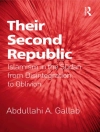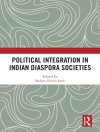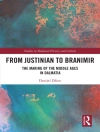<i>Crossing Borders</i> deconstructs contemporary theories of Soviet history from the revolution through the Stalin period, and offers new interpretations based on a transnational perspective. To Michael David-Fox, Soviet history was shaped by interactions across its borders. By reexamining conceptions of modernity, ideology, and cultural transformation, he challenges the polarizing camps of Soviet exceptionalism and shared modernity and instead strives for a theoretical and empirical middle ground as the basis for a creative and richly textured analysis.
Discussions of Soviet modernity have tended to see the Soviet state either as an archaic holdover from the Russian past, or as merely another form of conventional modernity. David-Fox instead considers the Soviet Union in its own light—as a seismic shift from tsarist society that attracted influential visitors from the pacifist Left to the fascist Right. By reassembling Russian legacies, as he shows, the Soviet system evolved into a complex "intelligentsia-statist" form that introduced an array of novel agendas and practices, many embodied in the unique structures of the party-state. <i>Crossing Borders</i> demonstrates the need for a new interpretation of the Russian-Soviet historical trajectory—one that strikes a balance between the particular and the universal.
Sobre o autor
Michael David-Fox is professor at the Edmund A. Walsh School of Foreign Service and the Department of History, Georgetown University. He is the author of <i>Showcasing the Great Experiment: Cultural Diplomacy and Western Visitors to the Soviet Union, 1921Ð1941</i> and <i>Revolution of the Mind: Higher Learning among the Bolsheviks, 1918Ð1929.</i> He coedited <i>Fascination and Enmity: Russia and Germany as Entangled Histories, 1914Ð1945 and The Holocaust in the East: Local Perpetrators and Soviet Responses.












